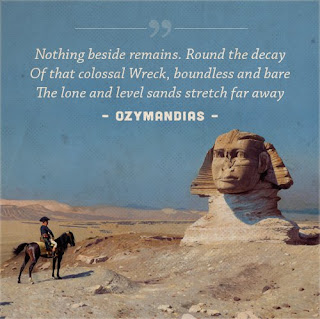The guys over at The Art of Manliness posted this collection of "
20 Classic Poems Every Man Should Read." I believe the primary reason poetry remains a timeless effective literary device in all cultures for the simple reason that many things are best said in through poetry; in other words, narrative cannot convey the depth of meaning mastered by poetry. Besides, poetry keeps a guy from getting calloused over and keeps him feeling.
I'm glad to recall how a few of these poems were introduced into my own life, even memorized at a very young age.
What follows are a few comments on a handful of personally significant poems from the list (above) along with a few choice lines.
Ulysses (Tennyson): life is for the living, so live it to the full.
"I cannot rest from travel: I will drink life to the lees . . .
Come, my friends,‘T is not too late to seek a newer world.
Push off, and sitting well in order smite
The sounding furrows; for my purpose holds
To sail beyond the sunset, and the baths
Of all the western stars, until I die."
If (Kipling): "if you can . . . you'll be a man"
Sailing to Byzantium (Yeats): grow old relentlessly pursuing what is beautiful and good.
"An aged man is but a paltry thing,
A tattered coat upon a stick, unless
Soul clap its hands and sing, and louder sing
For every tatter in its mortal dress,
Nor is there singing school but studying
Monuments of its own magnificence;
And therefore I have sailed the seas and come
To the holy city of Byzantium."
Invictus (Henley): Life is abundant with experience, which includes suffering.
"It matters not how strait the gate,
how charged with punishments the scroll,
I am the master of my fave,
I am the captain of my soul."
Last, but not least, and perhaps more importantly of all in the list is
Ozymandius (Shelley): what remains when you're gone? What is your legacy? Which part of "you" abides forever?
 |
| AofM |


